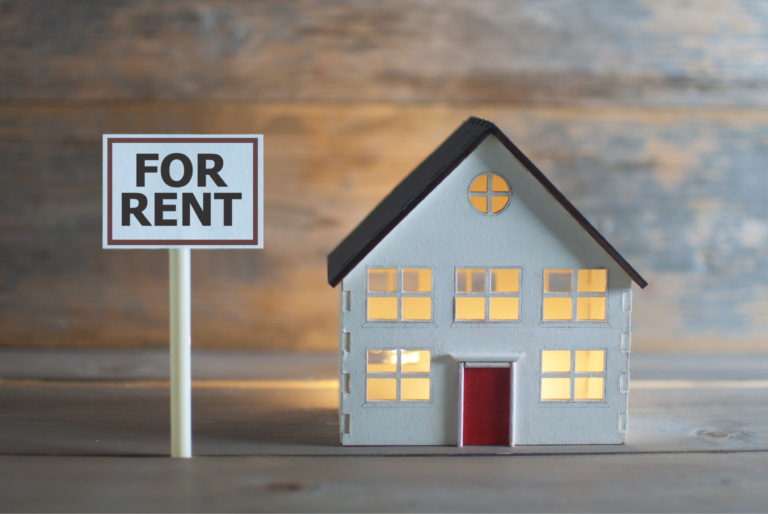Starting in 2025, Washington State introduced its first-ever rent cap—and for 2026, the maximum allowable rent increase in Seattle has been set at 9.683%. For landlords, this marks a major shift in how rental income can be managed and optimized. At SJA Property Management, we’re helping Seattle-area property owners stay compliant, stay ahead of the market, and protect long-term returns.
Before the 2026 cap takes effect, there’s still time to act.
Key takeaways
- 2025 rent increases are capped at 10% and 2026 rent increases are capped at 9.683%.
- HB 1217 requires all landlords to cap rent increases to 7% plus the inflation rate or 10%—whichever is lower.
- Delaying rent adjustments could lead to long-term revenue loss, especially if your current rates are below market.
- Working with a property manager like SJA Property
- Management ensures compliance and helps you make the most of this limited window.
House Bill 1217 and Washington’s 2026 rent cap
In May 2025, Washington Governor Bob Ferguson signed into law House Bill (HB) 1217, with the goal of improving stability for rental tenants by limiting rent increases. HB 1217 requires all landlords to cap rent increases to 7% plus the inflation rate or 10%—whichever is lower.
For 2026, rental housing providers across Washington, including the Seattle area, will only be able to increase rent by 9.683% as set by the state’s Department of Commerce under HB 1217. This rate is based on the latest Seattle-area Consumer Price Index (CPI) of 2.683% (7% + 2.683% = 9.683%). Currently, the 2025 rent cap in Seattle is 10%.
There are some exceptions to HB 1217:
- New construction rental properties are exempt for the first 12 years.
- Duplexes, triplexes and fourplexes in which the owner lives in one of the units are exempt.
- Public housing authorities and low-income developments are also exempt.
Additionally, for manufactured homes, all rent increases are capped at 5%.
The Department of Commerce will announce the annual rent cap each July to align with the release of inflation data from the U.S. Bureau of Labor Statistics.
Why now? Rent increases in Seattle over the years
For a long time, Washington State had legislation that prohibited rent control laws in the state. It was only with the introduction of HB 1217 in 2025 that rent control came into effect, marking a major shift for Seattle landlords used to setting market-driven rates.
This shift represents a new era for rental property owners in Seattle who now have to adjust their long-term investment strategies to take the new annual rent cap into consideration. Before 2025, landlords were free to respond fluidly to the rising cost of living, market demand, or increasing maintenance costs.
Now, landlords must proactively understand this policy change in order to protect their ROI in Seattle’s ever-evolving rental market.
What this means for Seattle landlords
The new rent cap for 2026 will cause some significant shifts in the financial landscape for Seattle landlords. This new legal ceiling on how much you can increase rent now ties landlords hands even if their expenses rise faster.
Landlords now have reduced flexibility when responding to inflation, property tax hikes, or increased maintenance costs. So, if your current rents are below market value, you may find it hard to close that gap in the future. The longer you wait to adjust your rent, the more limited your annual increases may be and this can impact your long-term cash flow.
The new rent cap in Seattle can be particularly troublesome if you’ve recently invested in upgrades or renovations with the plan to recoup the costs through rent. Under HB 1217, it will take longer to recoup capital expenses through rental income.
Even a small gap between what you’re charging your tenants now and what the market allows can add up over time. This is especially true when you have long-term tenants or own multiple units. By adjusting your rents before the 2026 cap kicks in, you can stay compliant while still maximizing your rental income.
What can you do now to maximize rent before the 2026 cap takes effect
1. Review lease timing
2. Provide notice before the deadline
In Washington, landlords are legally required to give tenants 60 days’ notice before raising their rent. And in Seattle, landlords are required to provide180 days written notice. That means if you want to increase your tenants rent before 2026, the increase needs to be communicated no later than June 2025. Missing that window could lock you into a lower rate until the rent cap is reset in 2027.
3. Analyze the rental market in your area
Take some time to evaluate comparable properties in your area to see if your current rents are in line with market expectations. If you find that your rents are significantly lower, consider adjusting your rent now. Once the rent cap comes into effect, it could take years to catch up.
The bottom line? Take action in 2025, while you still can. Planning ahead can help ensure your properties stay profitable under the new rent control laws in Washington.
Avoiding penalties and tenant pushback
As mentioned above, no matter when you raise rent, you need to give tenants in Seattle at least 180 days written notice. Missing this timeline could cause issues with your tenants and void any increase even if it adheres to the rent cap.
If you raise the rent above the cap and your rental property does not qualify for an exemption, the renter is required to give you a chance to fix the error, or they can terminate their lease with 20 days’ notice. The tenant or the state attorney general can also bring litigation against a landlord to enforce compliance. As a landlord you can also be fined up to $7,500 per violation.
It’s also important to remember Seattle’s Just Cause Eviction Ordinance—you cannot ask tenants to leave just because you want to increase the rent before the 2026 rent cap comes into effect. Any changes to tenancy should fall under one of the city’s approved reasons.
Being proactive, transparent, and well-documented helps reduce tenant pushback and keeps your property compliant under the city’s evolving rental laws.
Navigating the new rent cap laws
With new rent caps and strict notice rules, managing a rental property in Seattle isn’t as straightforward as setting your price and collecting rent. A professional property manager can help you navigate the ever-changing rental landscape in Seattle, Washington.
A property manager can help you stay on top of Seattle’s local laws as well as state laws, to ensure your property remains 100% compliant. They can also help you strategically time your lease renewals and adjustments so you can focus on growing your investment instead of the day-to-day logistics.
Most importantly, a reputable property management company, like SJA Property Management, can help you maximize your rental income within the new laws. Whether it’s identifying underpriced units, advising on renovations that justify higher rents, or helping you act before the 2026 cap takes effect, a property manager can be a valuable partner.
Ready to maximize your ROI?
If you’re not sure how to time rent increases, stay compliant, or evaluate your portfolio under the new rules, the team at SJA Property Management can help. We specialize in helping Seattle landlords navigate complex regulations while improving profitability.
Book a free consultation to get expert advice and take the guesswork out of managing your rentals.
Seattle rent increase 2026 FAQs
What is the rent law in Washington state 2025?
What is the maximum rent increase allowed in Seattle?
Does Seattle have rent control?
While Seattle doesn’t have traditional rent control, it is now subject to Washington’s statewide rent cap law, which limits how much landlords can raise rent each year starting in 2025.






